| | CMEP Weekly Bulletin: Armenia Says 49 Soldiers Killed in Attacks by Azerbaijan A look at renewed conflicts, policy, and more news in this week’s bulletin. CMEP’s Bulletin is a weekly round-up of news from the Middle East and represents an array of perspectives on the issues we cover. CMEP does not necessarily agree with all the views expressed in the articles, and they do not speak on CMEP’s behalf. | | | | 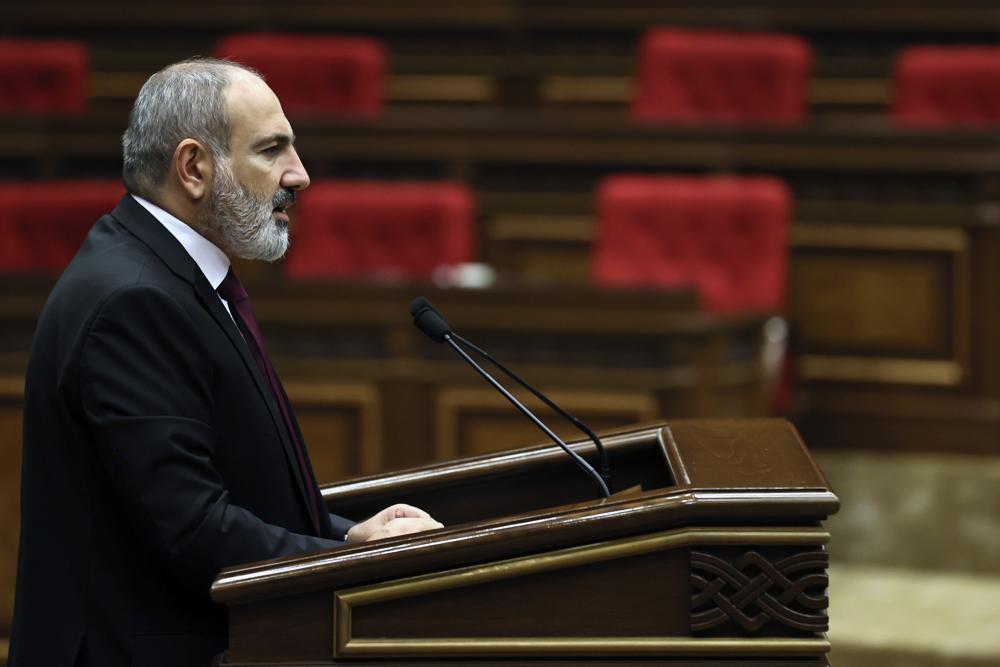 | Image: Armenian Prime minister Nikol Pashinyan delivers his speech at the National Assembly of Armenia in Yerevan, Armenia, Tuesday, Sept. 13, 2022. (Tigran Mehrabyan/PAN Photo via AP) | | | Armenia says 49 soldiers killed in attacks by Azerbaijan AP News “Azerbaijani forces shelled Armenia’s territory on Tuesday (September 13) in a large-scale attack that killed at least 49 Armenian soldiers and fueled fears of even broader hostilities. Azerbaijan and Armenia have been locked in a decades-old conflict over Nagorno-Karabakh, which is part of Azerbaijan but has been under the control of ethnic Armenian forces backed by Armenia since a separatist war there ended in 1994. Azerbaijan reclaimed broad swaths of Nagorno-Karabakh in a six-week war in 2020 that killed more than 6,600 people and ended with a Russia-brokered peace deal.” | | | | | | | | 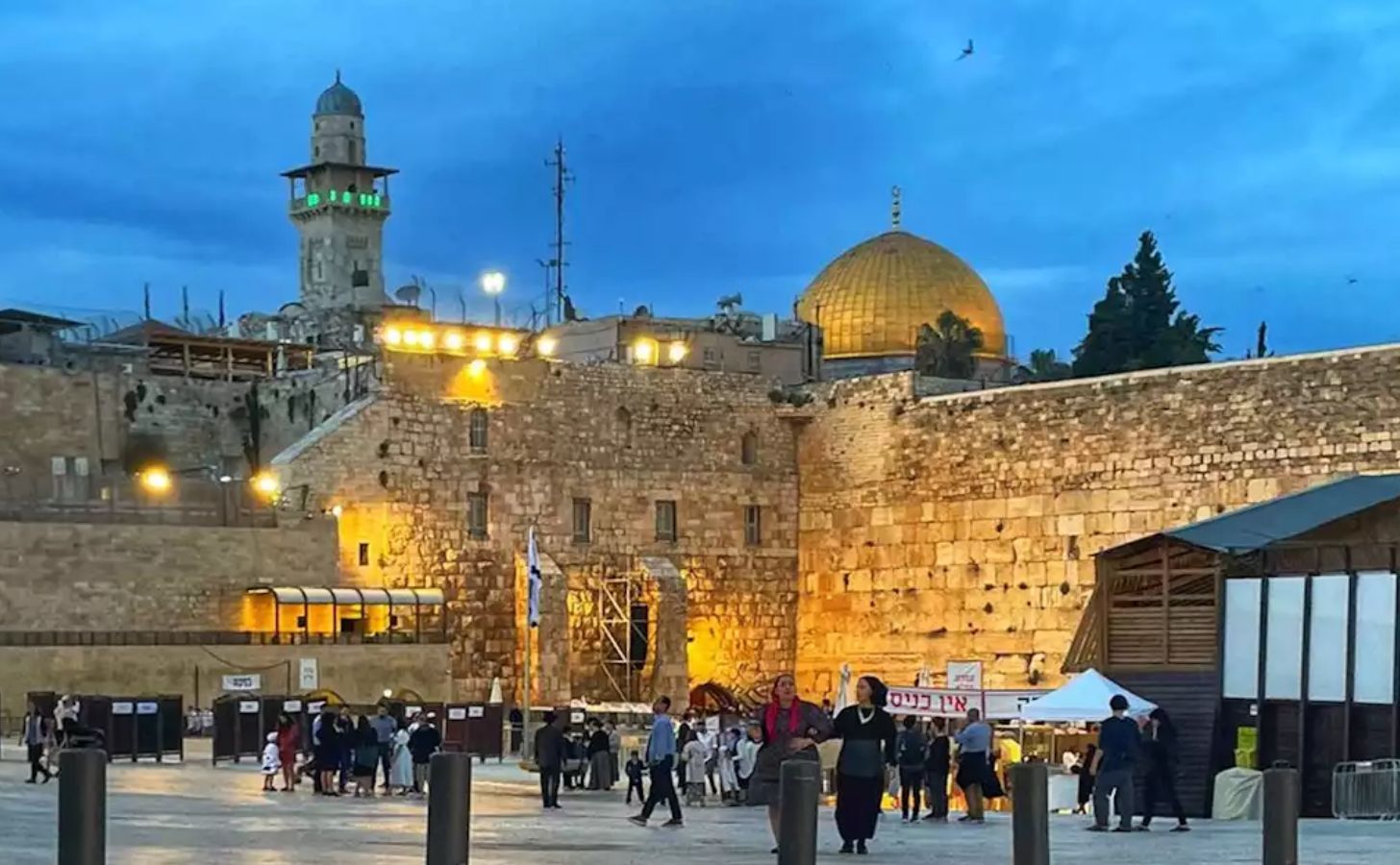 | Image: The Western Wall Plaza in Jerusalem at the end of the Jewish Sabbath, Saturday, April 16, 2022. (Michael Stack) | | | In the Holy Land, a place divided by religion, we discover how it is — and isn’t — like LDS Utah
Salt Lake Tribune “It is Good Friday, and we are sitting outside the Church of the Holy Sepulchre in the Old City, the traditional site of Jesus’ crucifixion and resurrection, waiting for the noon service to end. Knowing that it is also Passover and Ramadan, we engage in light conversation with a stranger on the steps. Have we heard, he asks breathlessly and with a dollop of incredulity, about the offer of 10,000 shekels (about $3,000) by an extremist group to any Jew who could smuggle a lamb onto the Temple Mount (which Muslims call the al-Aqsa Mosque compound) during the Islamic holy month and sacrifice it there as an act of defiance against the ‘status quo’? We hadn’t.” | | | | | | | | 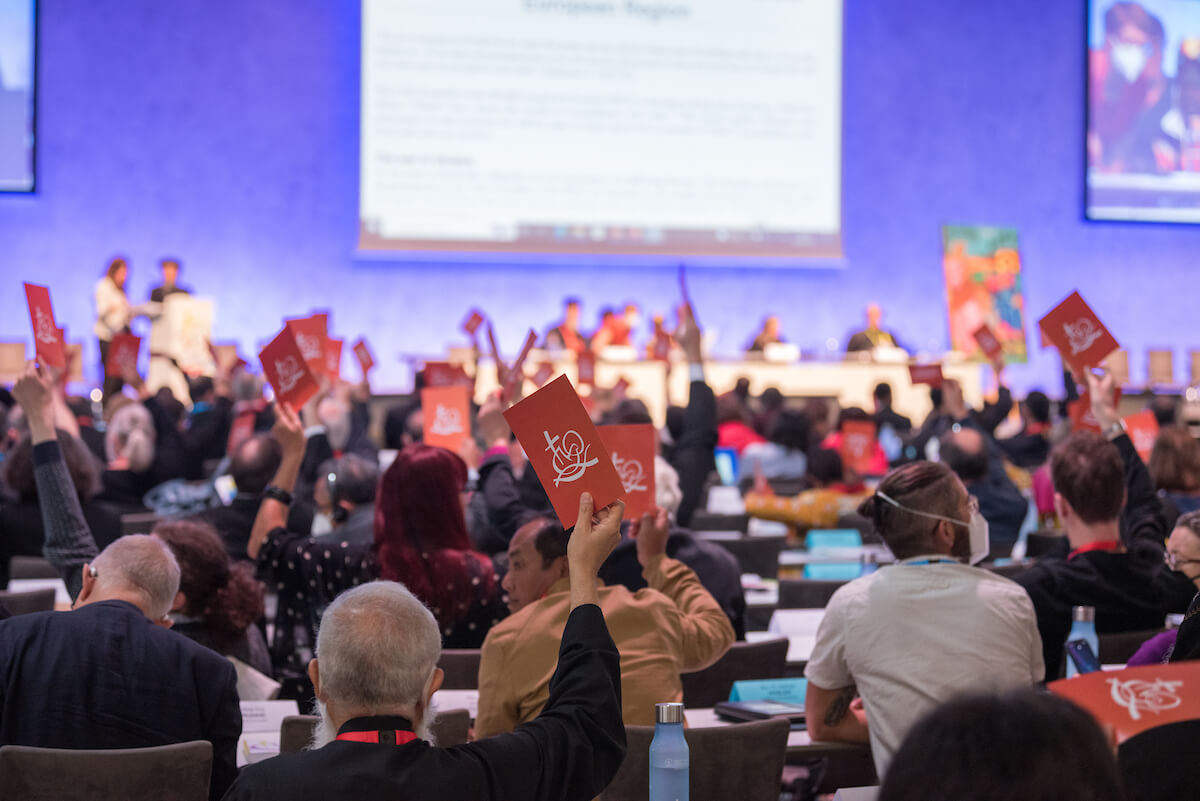 | Image: Assembly participants raise orange consensus cards in affirmation of what is said during a closing business plenary at the 11th Assembly of the World Council of Churches, held in Karlsruhe, Germany. (Albin Hillert/WCC) | | | World Council of Churches General Assembly puts Israeli apartheid on the global church’s table Mondoweiss “Thursday morning (September 8), the World Council of Churches (WCC) wrapped up its nine-day General Assembly in Karlsruhe, Germany. One of the last pieces of business was to consider a controversial statement put forward by the WCC’s Public Issues Committee, Seeking Justice and Peace for All in the Middle East. The WCC Assembly is the highest governing body of the World Council of Churches. Well over 3,000 participants from 352 member churches in 120 countries gathered for the COVID-delayed assembly that normally meets every eight years. Member churches and ecumenical partners come together for prayer, celebration and deliberation.” | | | | | | | | | | | | | | 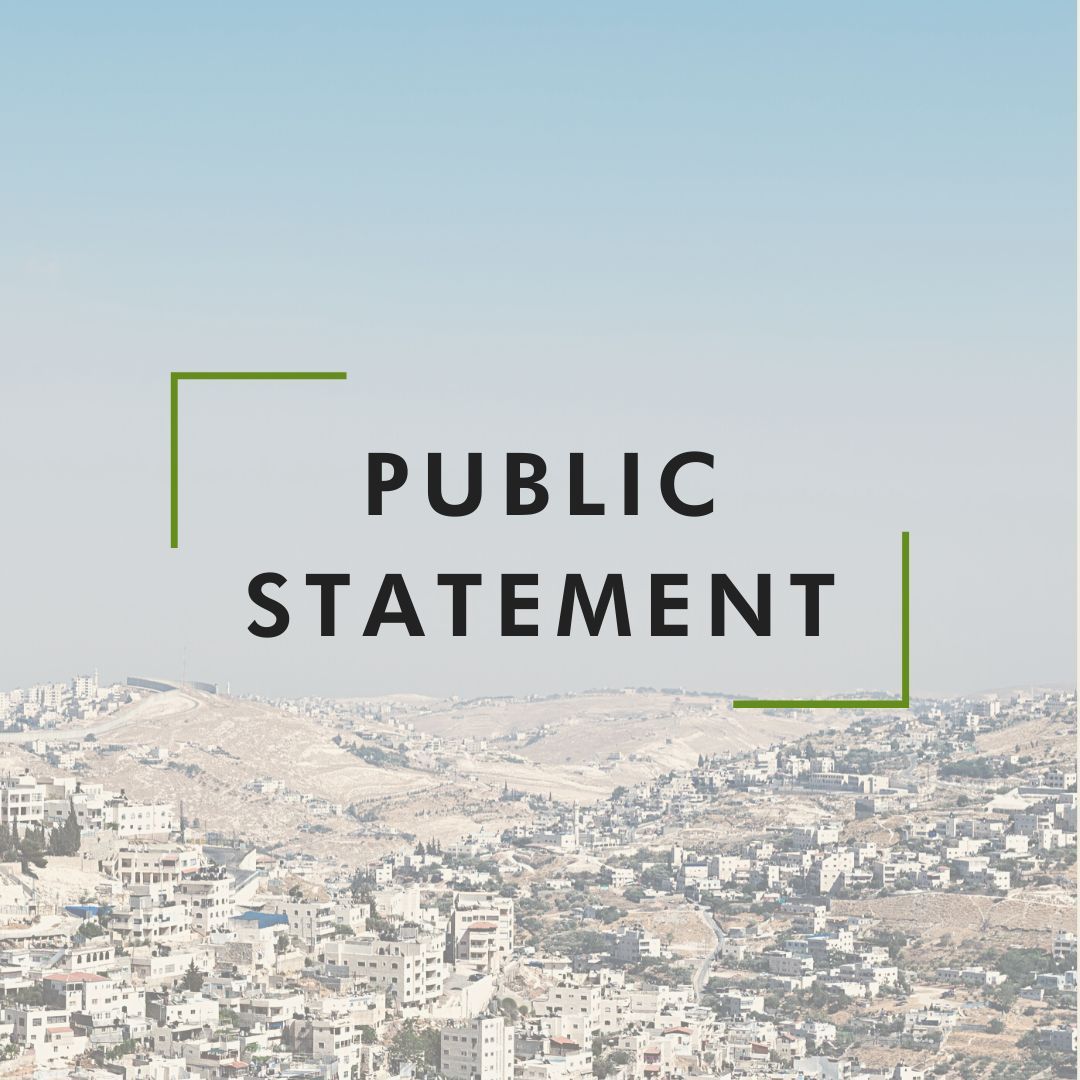 | Public Statement: Churches for Middle East Peace (CMEP) Calls for an End to the Attacks on the Armenian Border and an End to Hostilities Between Armenia and Azerbaijan CMEP calls for an immediate end to the attacks on the Armenian border and the violence centering around the region of Nagorno-Karabakh. | | | | |  | Partner with us!
CMEP relies on partnership to promote a just and lasting peace in the Middle East. CMEP helps churches, organizations, leaders, and individuals advocate for justice and peace for all people in knowledgeable, timely, holistic, and effective ways. We provide opportunities to learn about the Middle East, elevate diverse voices, and support local peacebuilding efforts in the region. | | | | |  | Meet the Academics of CMEP:
Register to meet the Academics of CMEP on September 29, 2022 at Noon Eastern via Zoom to learn about the work each is doing. Facilitated by Rev. Dr. Mae Elise Cannon: Executive Director & holds both a Ph.D. in American History with a minor in Middle Eastern studies from the University of California (Davis) and a D.Min in Ministry in Spiritual Formation from Northern Theological Seminary. | | | | | | | | Support the work of CMEP: Join us this month as we remember the legacy of our former Executive Director, Ambassador Warren Clark, by raising funds for our Fellowship in his name. The Ambassador Warren Clark Fellowship equips young Christian academics with the opportunity to research the ongoing conflict in the Middle East. Consider making a contribution to this vital program today! | | | | | | | | | | 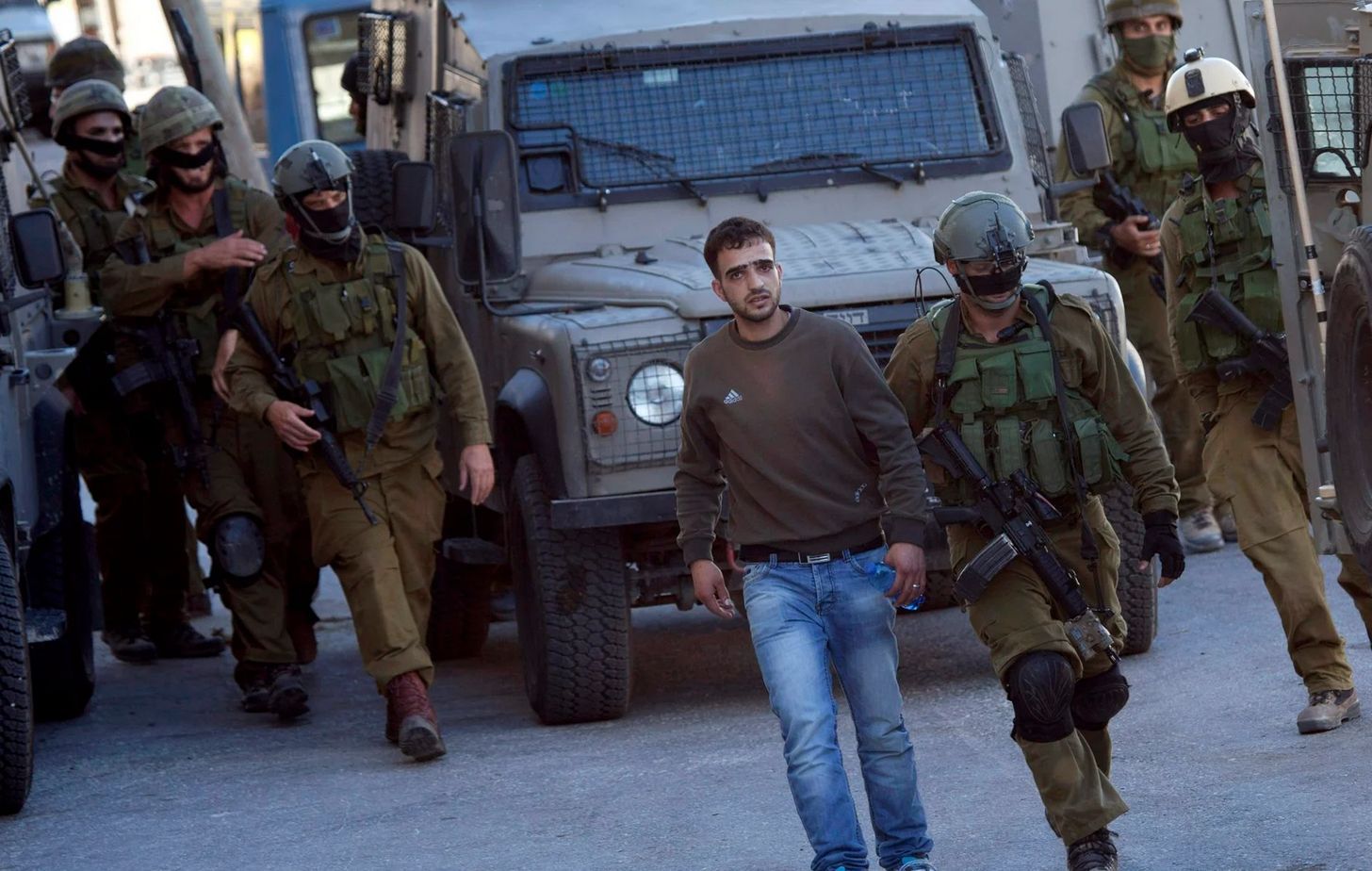 | Image: Arresting a Palestinian man in Hebron. (AP) | | | 2022 Already the deadliest year for West Bank Palestinians in 7 years
Haaretz “As of Monday (September 12), 81 Palestinians have been killed in the West Bank so far this year, making it the deadliest year since 2015 – in which 99 were killed. Seventy-eight of the 81 were shot by Israeli security forces, three were killed by Israeli civilians, and one more whom the Palestinians say was shot by Israeli forces despite IDF claims that he was likely killed by armed Palestinians.” | | | | | | | | 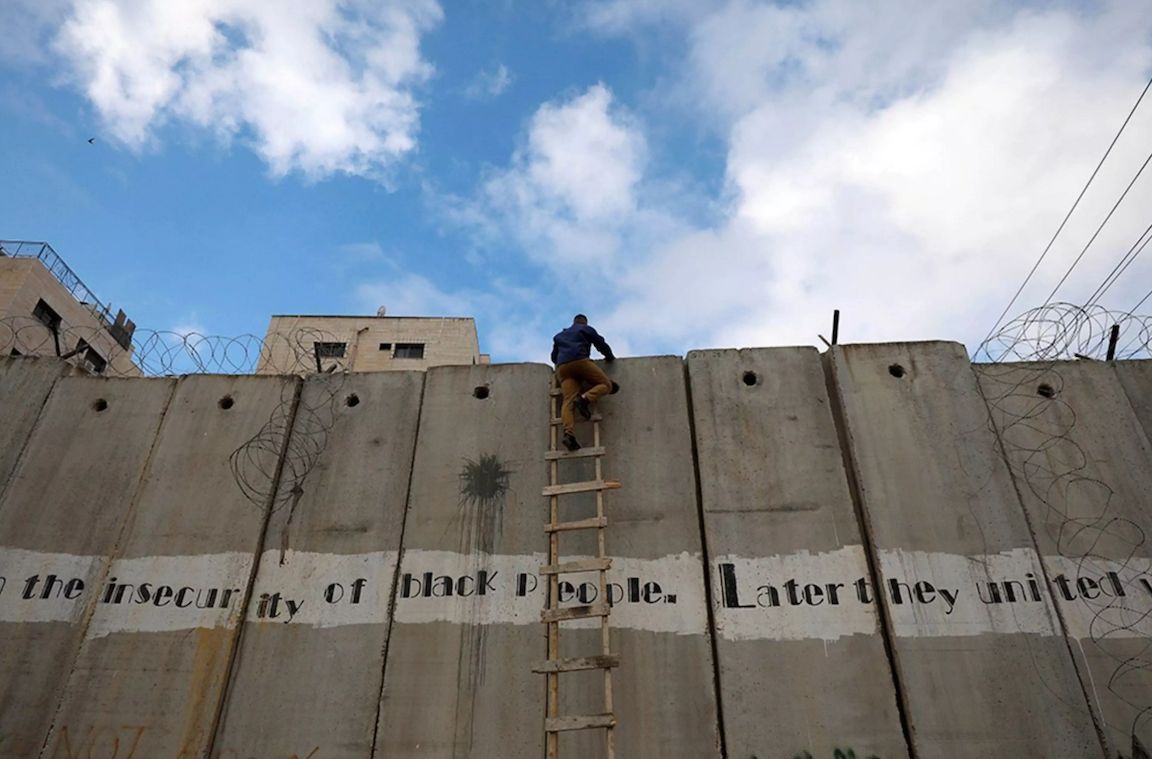 | Image: A Palestinian climbs the Israeli barrier in the Israeli-occupied West Bank. (Mohamad Torokman/Reuters) | | | What Is U.S. policy on the Israeli-Palestinian Conflict?
Council on Foreign Relations “Israelis and Palestinians have clashed over claims to the Holy Land for decades, a conflict that has long been one of the world’s most intractable. Although the United States is a strong supporter of Israel, it has traditionally tried to advance a diplomatic solution that would reconcile the competing claims of the two parties. Multiple U.S. administrations have proposed road maps for a peace process that would result in two states, one Israeli and one Palestinian. However, critics say prospects for a two-state solution dimmed under President Donald Trump, who implemented controversial policies regarding core components of the conflict. Though the Joe Biden administration has reiterated U.S. support for a two-state solution, it has reversed only some of Trump’s changes while leaving others in place, including the decision to recognize Jerusalem as Israel’s capital.” | | | | | | | | 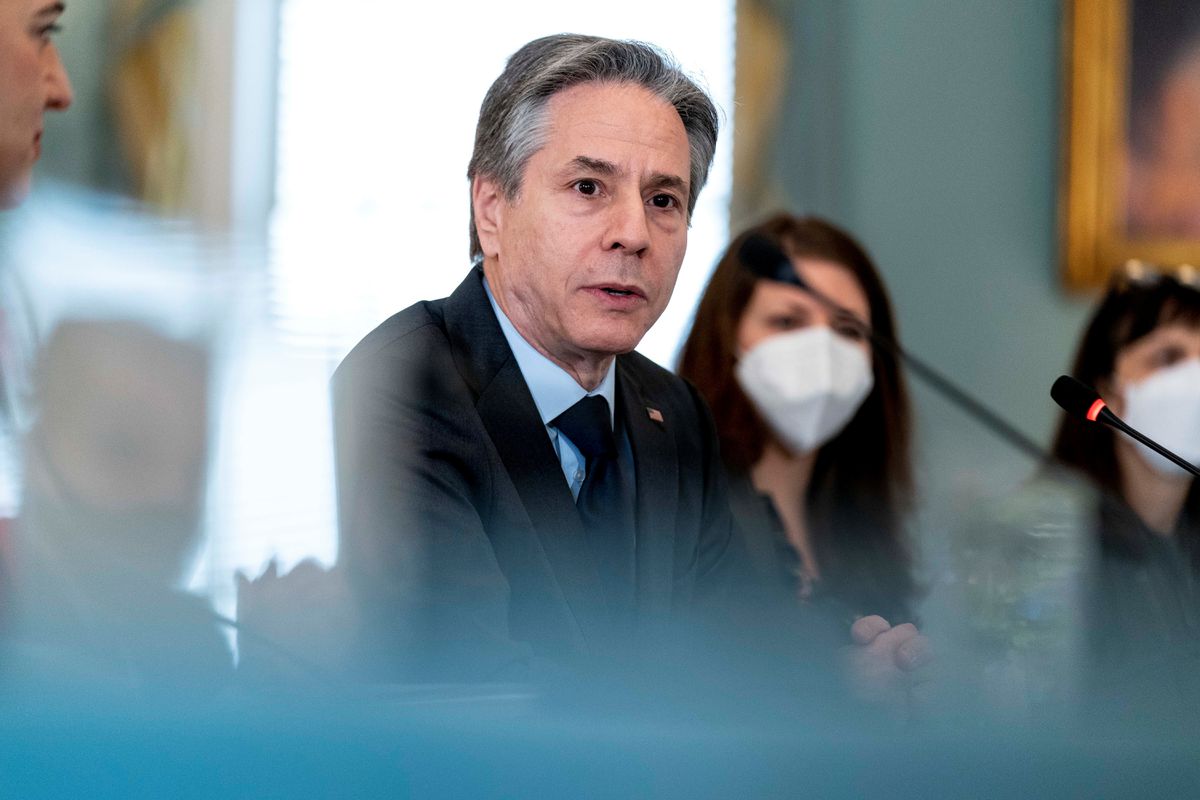 | Image: U.S. Secretary of State Antony Blinken speaks during a meeting with Egyptian Minister of Foreign Affairs Sameh Shoukry (not pictured), at the State Department in Washington, U.S., April 13, 2022. Andrew Harnik/Pool via Reuters) | | | U.S. to withhold $130 mln of military aid to Egypt over human rights -official
Reuters “The Biden administration has decided to withhold $130 million of foreign military aid to Egypt over its failure to fulfill human rights conditions, U.S. officials said on Wednesday (September 14), but allowed some funds to go through due to its determination that Cairo has made progress on political detentions. U.S. Secretary of State Antony Blinken has determined that Cairo, by releasing hundreds of jailed individuals, had made some progress on political detentions and due process, the officials said. Rights groups have pushed for withholding all of a $300 million portion of aid to Egypt placed under conditions by the U.S. Congress.” | | | | | | | | CMEP's Bulletin is a weekly round-up of news from the Middle East and represents an array of perspectives on the issues we cover. CMEP does not necessarily agree with all the views expressed in the articles, and they do not speak on CMEP's behalf. | | | | Churches for Middle East Peace (CMEP)
110 Maryland Ave NE, Suite 311 | Washington, District of Columbia 20002
(202) 543-1222 | info@cmep.org | | | | | | | | | |